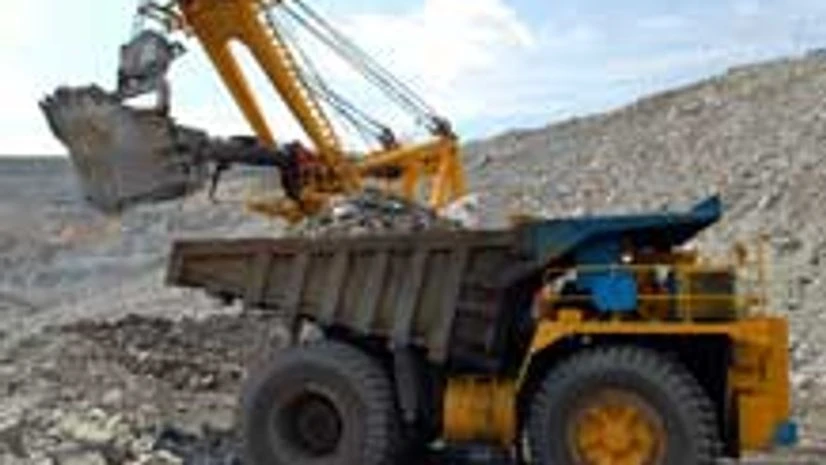Agreeing that illegal sand mining was adversely affecting development work and social fabric in villages, the Centre and the states have decided to approach the Supreme Court seeking clarification on the rules.
They will plea to the court to clarify whether the requirement of obtaining environment clearance for minor minerals for areas less than five hectare was a permanent obligation or only a transitory one till all states frame rules under Section 15 of the Mines and Minerals Development and Regulation Act. At a meeting convened by the ministry of mines from October 29 to 31, it was decided that the ministries of environment and forests, and mines will file an interlocutory application in this regard.
“Most of the states like Maharashtra and Madhya Pradesh have said there have been a rise in the cases of illegal mining of minor minerals especially sand, which is due to the requirement of obtaining environment clearance, as mandated in the Deepak Kumar judgment given by the apex court. Obtaining the clearance has proved to be difficult, with the various stages in obtaining it,” said a senior government official present at the meeting.
The official said almost all the state governments claimed that litigation was strangulating the administrative integrity impending grant or renewal of sand mining leases, resulting in an increase in illegal mining. The states also brought to the Centre’s notice that the illegal sand mining was on the rise due to the burgeoning gap between demand and supply of river sand.
The Madhya Pradesh government said the state has become the hub of illegal mining because of not being able to grant or renew mining leases.
This apart, the Maharashtra government has conveyed it has not been able to auction sand mines for past three to four years due to public interest litigations.
States also said they were in the midst of evolving a sand mining policy subsequent to the Deepak Kumar judgment delivered by the apex court with focus on information technology in a big way.
Sunil Mantri, president, National Real Estate Development Council, admitted that the sand availability continues to be a major challenge for the realty sector, as many projects are stalled due to acute shortage of sand supply. “We urge the government to ease the supply situation and also allow import from the neighbouring countries,” he said.
According to the official, the states made a strong case for the simplification and decentralisation of the process to get environmental clearances with the establishment of district- or region-level committees. Further, states said in stream, sand mining be allowed with a condition that a minimum quantity of sand be extracted and such sand be used to meet the local demand. States also emphasised the need for exemption of environmental clearance for short-term permission of removal of sand for the purpose of public works and housing.
They will plea to the court to clarify whether the requirement of obtaining environment clearance for minor minerals for areas less than five hectare was a permanent obligation or only a transitory one till all states frame rules under Section 15 of the Mines and Minerals Development and Regulation Act. At a meeting convened by the ministry of mines from October 29 to 31, it was decided that the ministries of environment and forests, and mines will file an interlocutory application in this regard.
“Most of the states like Maharashtra and Madhya Pradesh have said there have been a rise in the cases of illegal mining of minor minerals especially sand, which is due to the requirement of obtaining environment clearance, as mandated in the Deepak Kumar judgment given by the apex court. Obtaining the clearance has proved to be difficult, with the various stages in obtaining it,” said a senior government official present at the meeting.
The official said almost all the state governments claimed that litigation was strangulating the administrative integrity impending grant or renewal of sand mining leases, resulting in an increase in illegal mining. The states also brought to the Centre’s notice that the illegal sand mining was on the rise due to the burgeoning gap between demand and supply of river sand.
The Madhya Pradesh government said the state has become the hub of illegal mining because of not being able to grant or renew mining leases.
This apart, the Maharashtra government has conveyed it has not been able to auction sand mines for past three to four years due to public interest litigations.
States also said they were in the midst of evolving a sand mining policy subsequent to the Deepak Kumar judgment delivered by the apex court with focus on information technology in a big way.
Sunil Mantri, president, National Real Estate Development Council, admitted that the sand availability continues to be a major challenge for the realty sector, as many projects are stalled due to acute shortage of sand supply. “We urge the government to ease the supply situation and also allow import from the neighbouring countries,” he said.
According to the official, the states made a strong case for the simplification and decentralisation of the process to get environmental clearances with the establishment of district- or region-level committees. Further, states said in stream, sand mining be allowed with a condition that a minimum quantity of sand be extracted and such sand be used to meet the local demand. States also emphasised the need for exemption of environmental clearance for short-term permission of removal of sand for the purpose of public works and housing.

)
